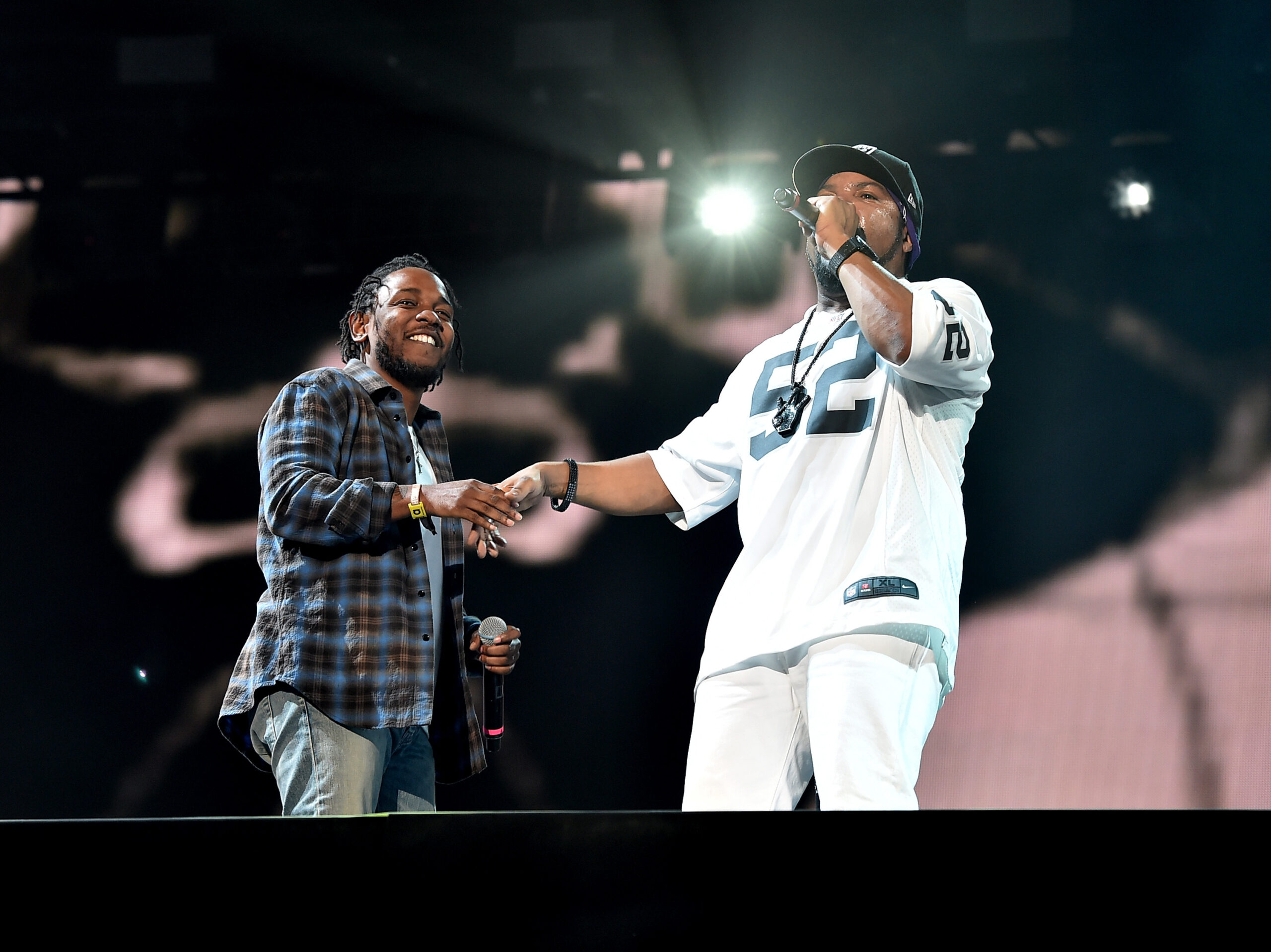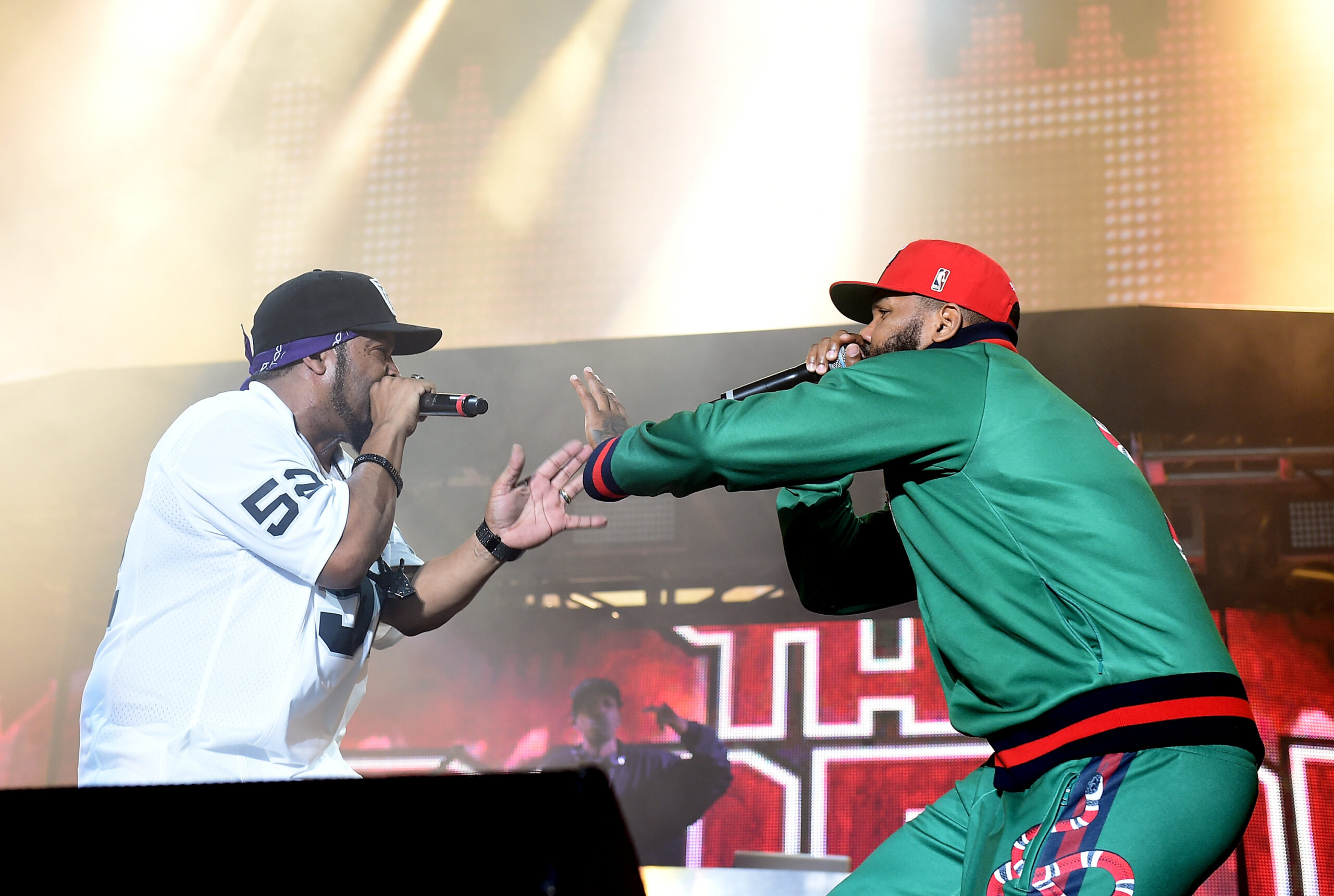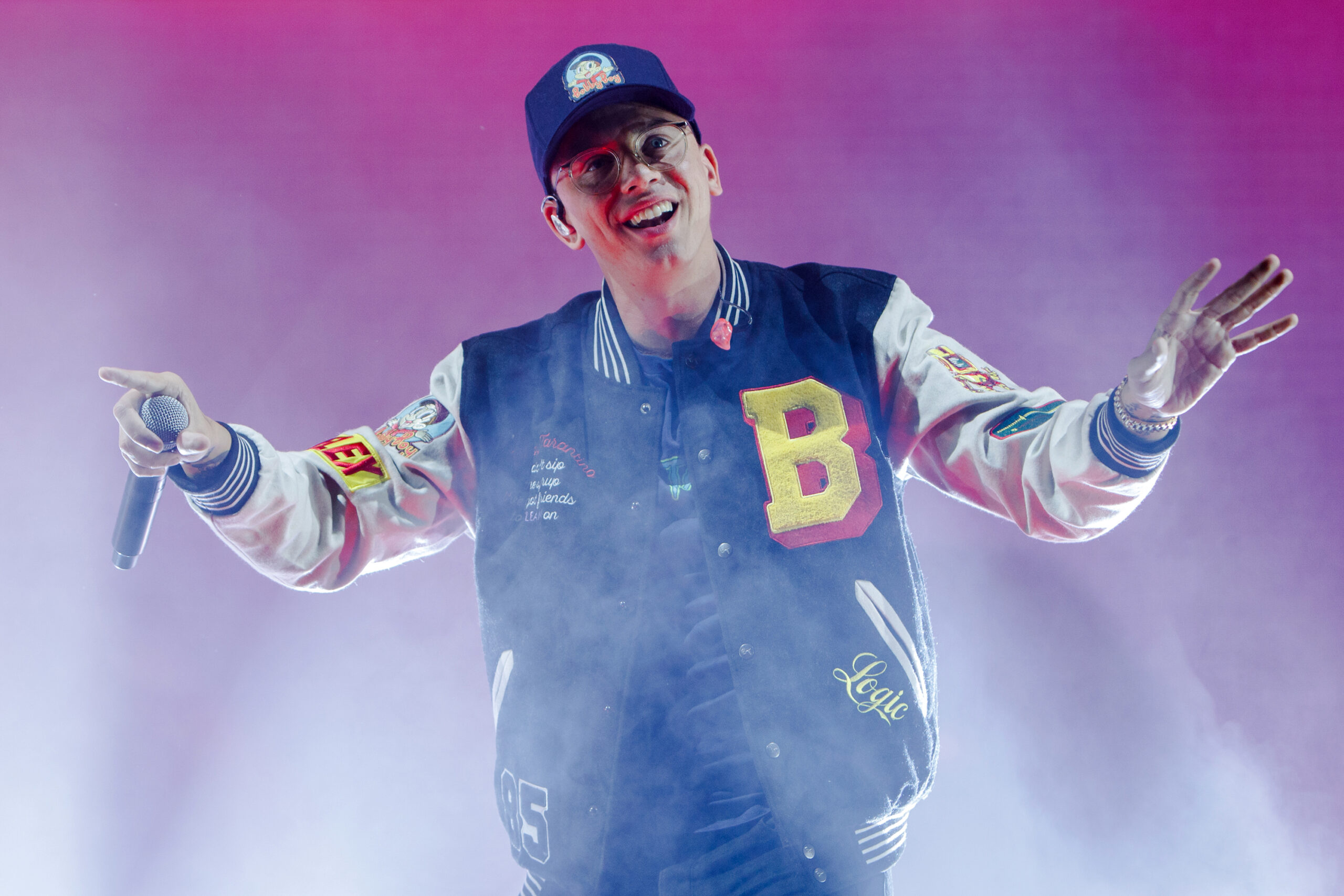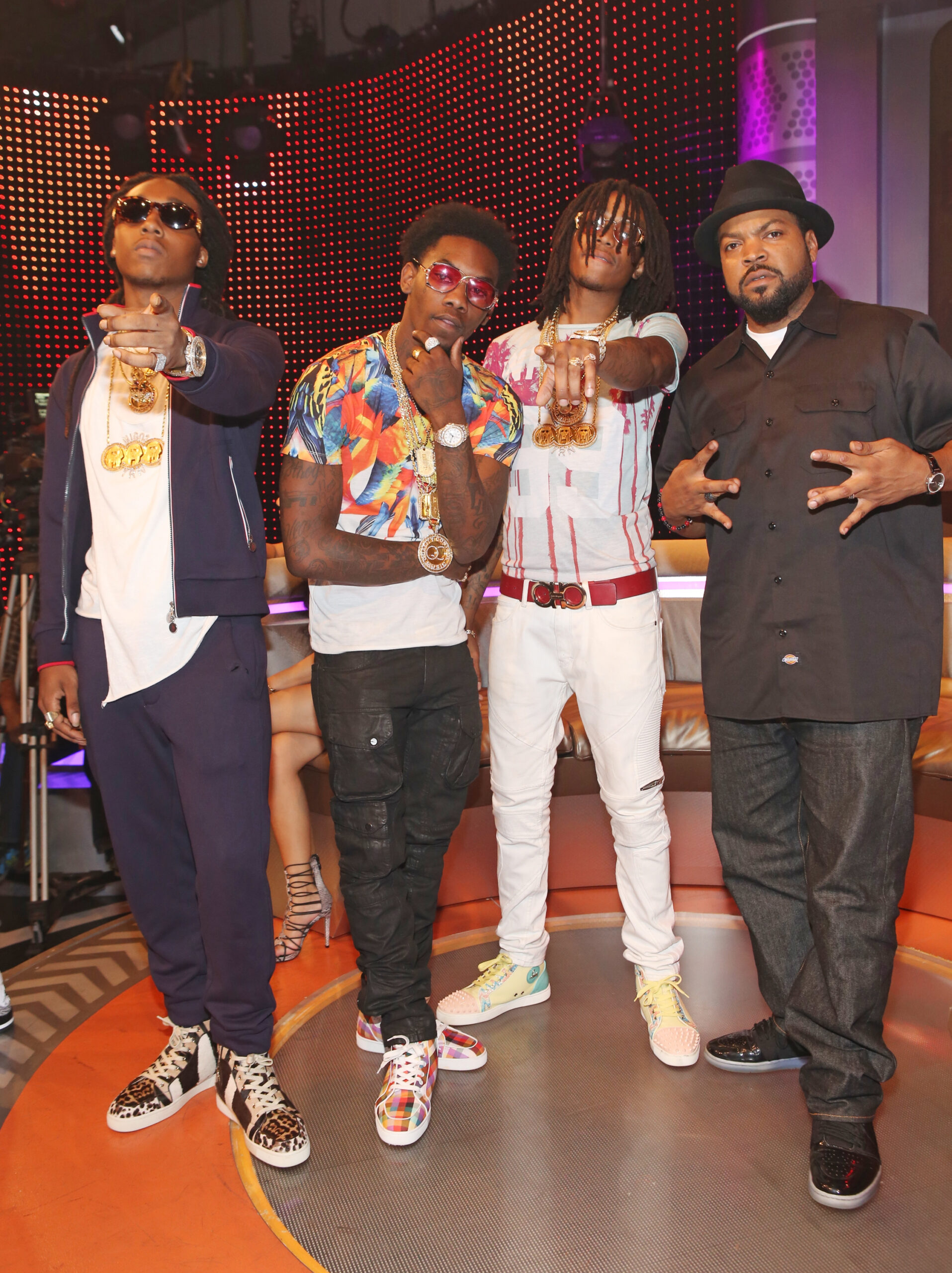Ice Cube was shouting, “I keep bellin’,” all the way back in 1988. The Los Angeles rapper (born June 15, 1969) rose to fame in the late ‘80s with his notorious Compton rap crew N.W.A. The gangsta rap pioneers formed after Ice Cube linked up with Dr. Dre for his first group, C.I.A.’s, only release. Dre was simultaneously plotting N.W.A. with Eazy-E and brought Ice Cube into the fold, ultimately leading to C.I.A.’s disbandment. Since then, Ice Cube’s influence has been all over hip-hop. Why?
Ice Cube was the lyrical mastermind of N.W.A.’s Straight Outta Compton, the group’s best-selling album. After an ongoing argument over royalties, he decided to call it quits and left the group. He later stated that the group’s manager, Jerry Heller, offered a questionable contract, which he refused to sign. But after Cube left it all behind, he went on to make continual waves across a lengthy solo career.
The effect his work has had on hip-hop–both with N.W.A. and his solo albums–cannot be overstated. His lyrical style and approach to delivery are sprinkled throughout the efforts of many contemporary hip-hop artists. Let’s highlight some big names who have cited Ice Cube as an enduring influence.
Kendrick Lamar’s Content Reflects Ice Cube’s Approach

Fellow Compton native Kendrick Lamar is known for eclectic influences that include old-school stars like Sly & the Family Stone and John Coltrane. The rapper’s music is a kaleidoscope of sounds and styles, but there is an undeniable Ice Cube flare running through a lot of it. For Lamar, this was likely somewhat impossible to escape.
The 17-time Grammy winner notes that Dr. Dre’s continued mentorship has had an undeniably West Coast effect on his sound. In his interview with N.W.A. back in 2015, Lamar told the legendary rap group that, simply put, “Anything that I’ve done…has come from what y’all done.” While this is more or less true of most rappers, it seems especially true of Lamar. And when you factor in Ice Cube’s influence as the lyrical brains of Straight Outta Compton, relevant comparisons become more noticeable.
His general content isn’t so far off from Ice Cube’s. Throughout much of Ice Cube’s career, his lyrical content has focused on the raw realities of Los Angeles street life. Lamar’s own song content and political appraisals take a similar approach. They both have attempted to discuss the basic situation of their lives without necessarily trying to glorify or promote it.
The Game Studied Ice Cube’s Death Certificate

Another Compton native, The Game (born Jayceon Terrell Taylor), has specifically referenced Ice Cube’s solo work in his music. For him, Ice Cube’s delivery on record is one of the greatest ever. His major-label debut, The Documentary, gives nods to Ice Cube’s sophomore album, Death Certificate. He studied this album, along with other hip-hop classics, during his time in recovery from gunshot wounds in 2001. He once cited the Death Certificate diss track “No Vaseline” as a monumental track that fueled him in his own beef with 50 Cent. It’s worth noting that The Game also has Ice Cube’s old group N.W.A. tattooed on his chest. This is an obvious nod to the group’s lasting impact on his life. The combination of N.W.A. and Ice Cube’s influence left an indelible mark on The Game’s approach to hip-hop.
El-P Connects With Killer Mike Over AmeriKKKa’s Most Wanted

One half of the rap duo Run the Jewels, producer El-P’s background is well-known. After all, he produced the likes of Aesop Rock, Murs, and Del the Funky Homosapien. What many fans aren’t aware of are his artistic debts to Ice Cube. El-P cites Ice Cube’s influential solo debut, AmeriKKKa’s Most Wanted, as one of the things he and Killer Mike connected over. While he was originally hesitant about the possible link-up with Killer Mike, that album proved to be common ground for bonding. Another bridge between the duo was talking about Ice Cube’s departure from N.W.A.
Logic Covers “It Was a Good Day”

The Maryland rapper Logic has released a string of eight albums since 2014. He broke through with his third mixtape in the Young Sinatra series in 2013, leading to a Def Jam contact. A little over a year ago, Logic dropped an alternative cover of Ice Cube’s “It Was a Good Day” off The Predator album. For him, it was an attempt to showcase his debt to the Los Angeles rapper.
Logic’s work has consistently divided hip-hop fans, and this homage to his influence was no exception. Some listeners bobbed their heads along in approval, while others flooded social media with insults. It turns out, however, that Logic did his due diligence before recording the cover. He cites direct approval from Ice Cube via text to transform the 1992 single.
Quavo Inspired by Ice Cube to Become an Actor

Quavo hails from Georgia, where he founded the acclaimed group Migos with his nephew Takeoff and their friend Offset in 2008. The trio would ride a high level of success over the 2010s with four commercially successful albums. In 2016, Migos acted in an episode of Donald Glover’s rap drama Atlanta. They portrayed fictional versions of themselves as a gang named “Migos.”
This would prove to be the beginning of Quavo’s larger acting ambitions. In the year leading up to Migos’ break-up, Quavo worked on multiple feature film roles. One of the major reasons for Quavo to pursue a rapper-actor career path comes from Ice Cube’s influence. He sees Ice Cube as a trailblazer in this respect, someone who successfully navigated both worlds. Quavo has remained dedicated to acting, playing roles in three films thus far: Savage Salvation, Praise This, and Cash Out with John Travolta. He’s currently working on his fourth, Takeover, where he is stepping into a leading role as the character Guy Miller.
The post Who Did Ice Cube Influence? appeared first on HotNewHipHop.
